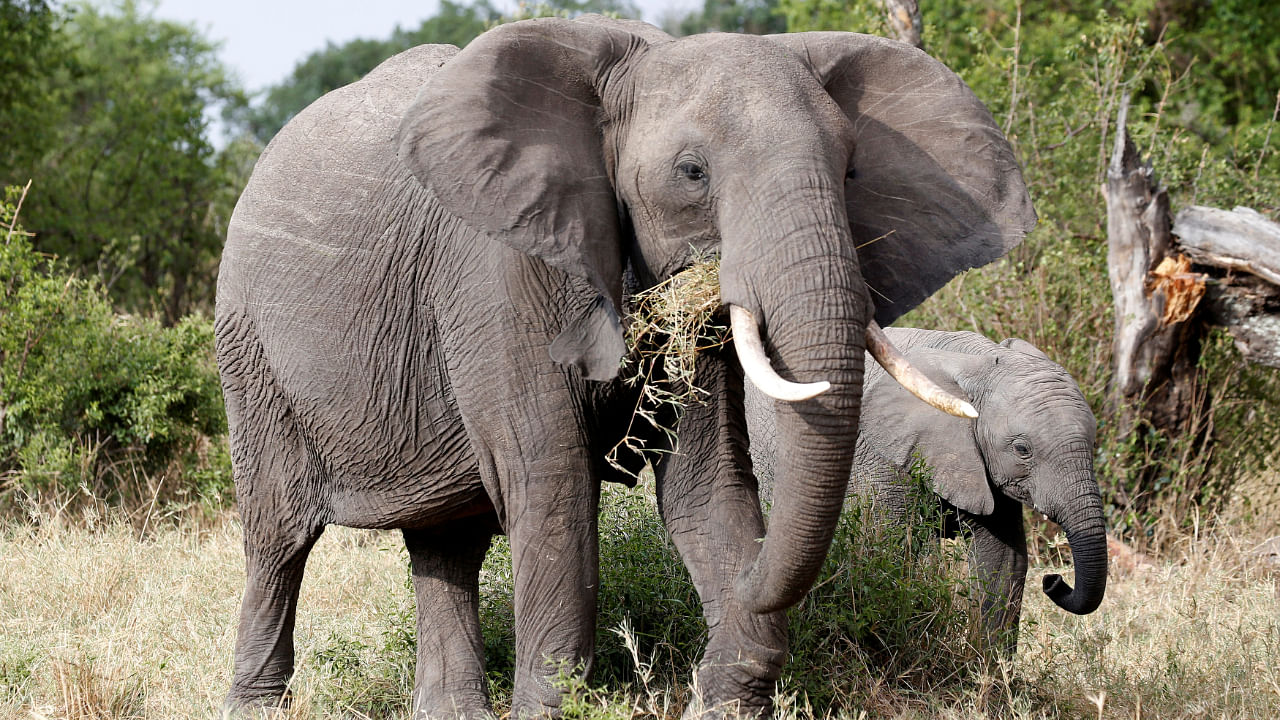
A female elephant and her calf died after being hit by Rajdhani Express on Sunday night near Mariani in eastern Assam's Golaghat town.
The incident took place at around 10.50 pm on Sunday, when the New Delhi-bound train hit the jumbos as they were trying to cross the tracks. Forest officials said the baby elephant was mowed down while the mother, aged about 21 years, died after being dashed by the train. A forest official in Mariani said the jumbo died due to massive head injury caused by the train hit.
The place where the incident took place is a notified elephant corridor and the North East Frontier Railway (NFR) had imposed a speed limit of 50kmph in order to prevent death of elephants.
The forest official added that the NFR was informed about the movement of wild elephants in the area as the Gibbon Wildlife Sanctuary is situated nearby. "We shared the information at around 8 pm in the WhatsApp group having officials of NFR, forest personnel, district administration officials and others," the official said.
Chief Public Relations Officer of NFR, Sabyasachi De told DH that the train was maintaining 50kmph speed limit in the area and the locomotive pilot tried his best but the mishap could not be averted. "Even at 50kmph speed, the loco pilot needs more than half a kilometer to stop the train. The loco pilot was on alert and he used brakes but the train could not be stopped abruptly for safety," he said.
De said at least 35 elephants have died due to train hits in areas under NFR, mostly in Assam and North Bengal, since 2017, but 1,166 wild elephants had been saved due to the alertness of the locomotive pilots during the same period. "The NFR is very sensitive about wild elephants and we have taken several steps including speed restrictions, which helped us prevent several mishaps in the past few years."
Death of wild elephants in train hits, electrocution, and poisoning by humans has become a serious issue in Assam as the state witnesses growing human-elephant conflicts. Such conflicts go up during the winter when the wild elephants come down the hills in search of water and food. They destroy the paddy fields and even move into villages, resulting in conflicts.
Assam has the second highest number of wild elephants (5,700 as per 2017 Census) in India after Karnataka.